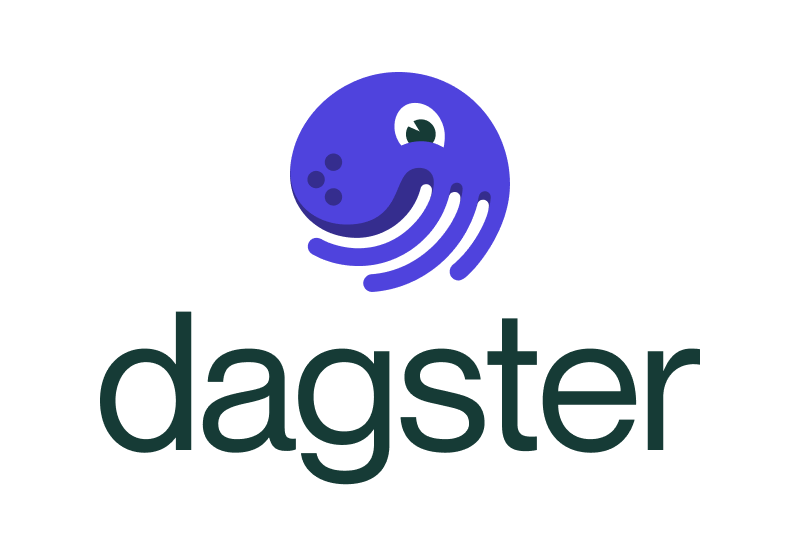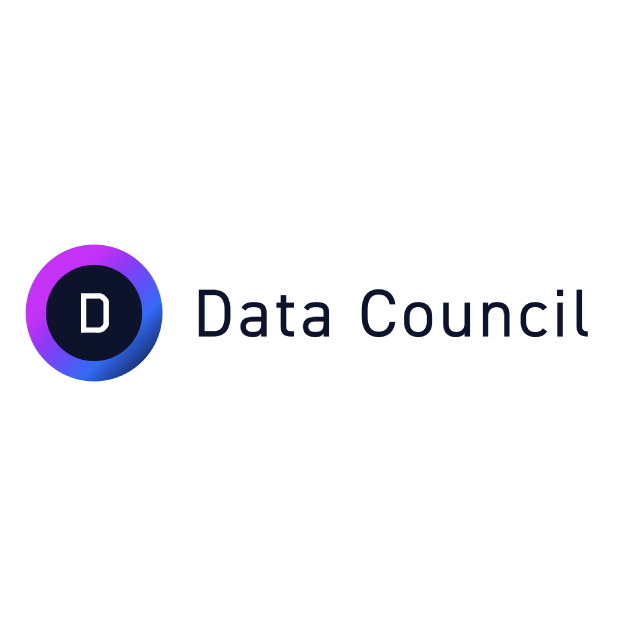
 Data Engineering Podcast
Data Engineering Podcast Reconciling The Data In Your Databases With Datafold
Mar 17, 2024
The podcast delves into data reconciliation in databases, discussing error conditions and solutions to ensure data accuracy. Topics include challenges in data management, techniques for maintaining data quality, navigating reconciliation in warehouse migration projects, and strategies for cost management and data optimization. The innovative uses of Datafold and Data Diff utility in various sectors, intersection of data engineering and AI applications, and advancements in tooling support for data engineers are also explored.
58:14
1 chevron_right 2 chevron_right 3 chevron_right 4 chevron_right 5 chevron_right 6 chevron_right 7 chevron_right 8 chevron_right
Introduction
00:00 • 2min
Evolution and Challenges in Data Management
01:40 • 5min
Data Reconciliation for Maintaining Data Quality in Database Environments
06:28 • 17min
Challenges and Solutions for Data Consistency in Databases
23:10 • 5min
Navigating Data Reconciliation Challenges in Warehouse Migration Projects
28:08 • 14min
Cost Management and Data Optimization in Database Transfers
42:05 • 3min
Innovative Uses of Datafold and Data Diff Utility
44:45 • 10min
Exploring the Intersection of Data Engineering and AI Applications
54:41 • 4min
Summary
A significant portion of data workflows involve storing and processing information in database engines. Validating that the information is stored and processed correctly can be complex and time-consuming, especially when the source and destination speak different dialects of SQL. In this episode Gleb Mezhanskiy, founder and CEO of Datafold, discusses the different error conditions and solutions that you need to know about to ensure the accuracy of your data.
Announcements
- Hello and welcome to the Data Engineering Podcast, the show about modern data management
- Dagster offers a new approach to building and running data platforms and data pipelines. It is an open-source, cloud-native orchestrator for the whole development lifecycle, with integrated lineage and observability, a declarative programming model, and best-in-class testability. Your team can get up and running in minutes thanks to Dagster Cloud, an enterprise-class hosted solution that offers serverless and hybrid deployments, enhanced security, and on-demand ephemeral test deployments. Go to dataengineeringpodcast.com/dagster today to get started. Your first 30 days are free!
- Data lakes are notoriously complex. For data engineers who battle to build and scale high quality data workflows on the data lake, Starburst powers petabyte-scale SQL analytics fast, at a fraction of the cost of traditional methods, so that you can meet all your data needs ranging from AI to data applications to complete analytics. Trusted by teams of all sizes, including Comcast and Doordash, Starburst is a data lake analytics platform that delivers the adaptability and flexibility a lakehouse ecosystem promises. And Starburst does all of this on an open architecture with first-class support for Apache Iceberg, Delta Lake and Hudi, so you always maintain ownership of your data. Want to see Starburst in action? Go to dataengineeringpodcast.com/starburst and get $500 in credits to try Starburst Galaxy today, the easiest and fastest way to get started using Trino.
- Join us at the top event for the global data community, Data Council Austin. From March 26-28th 2024, we'll play host to hundreds of attendees, 100 top speakers and dozens of startups that are advancing data science, engineering and AI. Data Council attendees are amazing founders, data scientists, lead engineers, CTOs, heads of data, investors and community organizers who are all working together to build the future of data and sharing their insights and learnings through deeply technical talks. As a listener to the Data Engineering Podcast you can get a special discount off regular priced and late bird tickets by using the promo code dataengpod20. Don't miss out on our only event this year! Visit dataengineeringpodcast.com/data-council and use code dataengpod20 to register today!
- Your host is Tobias Macey and today I'm welcoming back Gleb Mezhanskiy to talk about how to reconcile data in database environments
Interview
- Introduction
- How did you get involved in the area of data management?
- Can you start by outlining some of the situations where reconciling data between databases is needed?
- What are examples of the error conditions that you are likely to run into when duplicating information between database engines?
- When these errors do occur, what are some of the problems that they can cause?
- When teams are replicating data between database engines, what are some of the common patterns for managing those flows?
- How does that change between continual and one-time replication?
- What are some of the steps involved in verifying the integrity of data replication between database engines?
- If the source or destination isn't a traditional database engine (e.g. data lakehouse) how does that change the work involved in verifying the success of the replication?
- What are the challenges of validating and reconciling data?
- Sheer scale and cost of pulling data out, have to do in-place
- Performance. Pushing databases to the limit, especially hard for OLTP and legacy
- Cross-database compatibilty
- Data types
- What are the most interesting, innovative, or unexpected ways that you have seen Datafold/data-diff used in the context of cross-database validation?
- What are the most interesting, unexpected, or challenging lessons that you have learned while working on Datafold?
- When is Datafold/data-diff the wrong choice?
- What do you have planned for the future of Datafold?
Contact Info
Parting Question
- From your perspective, what is the biggest gap in the tooling or technology for data management today?
Closing Announcements
- Thank you for listening! Don't forget to check out our other shows. Podcast.__init__ covers the Python language, its community, and the innovative ways it is being used. The Machine Learning Podcast helps you go from idea to production with machine learning.
- Visit the site to subscribe to the show, sign up for the mailing list, and read the show notes.
- If you've learned something or tried out a project from the show then tell us about it! Email hosts@dataengineeringpodcast.com) with your story.
Links
- Datafold
- data-diff
- Hive
- Presto
- Spark
- SAP HANA
- Change Data Capture
- Nessie
- LakeFS
- Iceberg Tables
- SQLGlot
- Trino
- GitHub Copilot
The intro and outro music is from The Hug by The Freak Fandango Orchestra / CC BY-SA
Sponsored By:
- Starburst:  This episode is brought to you by Starburst - a data lake analytics platform for data engineers who are battling to build and scale high quality data pipelines on the data lake. Powered by Trino, Starburst runs petabyte-scale SQL analytics fast at a fraction of the cost of traditional methods, helping you meet all your data needs ranging from AI/ML workloads to data applications to complete analytics. Trusted by the teams at Comcast and Doordash, Starburst delivers the adaptability and flexibility a lakehouse ecosystem promises, while providing a single point of access for your data and all your data governance allowing you to discover, transform, govern, and secure all in one place. Starburst does all of this on an open architecture with first-class support for Apache Iceberg, Delta Lake and Hudi, so you always maintain ownership of your data. Want to see Starburst in action? Try Starburst Galaxy today, the easiest and fastest way to get started using Trino, and get $500 of credits free. [dataengineeringpodcast.com/starburst](https://www.dataengineeringpodcast.com/starburst)
- Dagster:  Data teams are tasked with helping organizations deliver on the premise of data, and with ML and AI maturing rapidly, expectations have never been this high. However data engineers are challenged by both technical complexity and organizational complexity, with heterogeneous technologies to adopt, multiple data disciplines converging, legacy systems to support, and costs to manage. Dagster is an open-source orchestration solution that helps data teams reign in this complexity and build data platforms that provide unparalleled observability, and testability, all while fostering collaboration across the enterprise. With enterprise-grade hosting on Dagster Cloud, you gain even more capabilities, adding cost management, security, and CI support to further boost your teams' productivity. Go to [dagster.io](https://dagster.io/lp/dagster-cloud-trial?source=data-eng-podcast) today to get your first 30 days free!
- Data Council:  Join us at the top event for the global data community, Data Council Austin. From March 26-28th 2024, we'll play host to hundreds of attendees, 100 top speakers and dozens of startups that are advancing data science, engineering and AI. Data Council attendees are amazing founders, data scientists, lead engineers, CTOs, heads of data, investors and community organizers who are all working together to build the future of data and sharing their insights and learnings through deeply technical talks. As a listener to the Data Engineering Podcast you can get a special discount off regular priced and late bird tickets by using the promo code dataengpod20. Don't miss out on our only event this year! Visit [dataengineeringpodcast.com/data-council](https://www.dataengineeringpodcast.com/data-council) and use code **dataengpod20** to register today! Promo Code: dataengpod20
